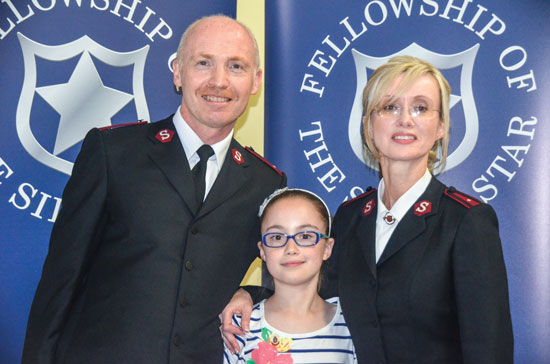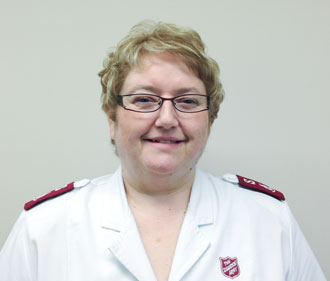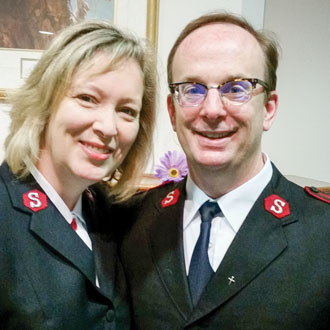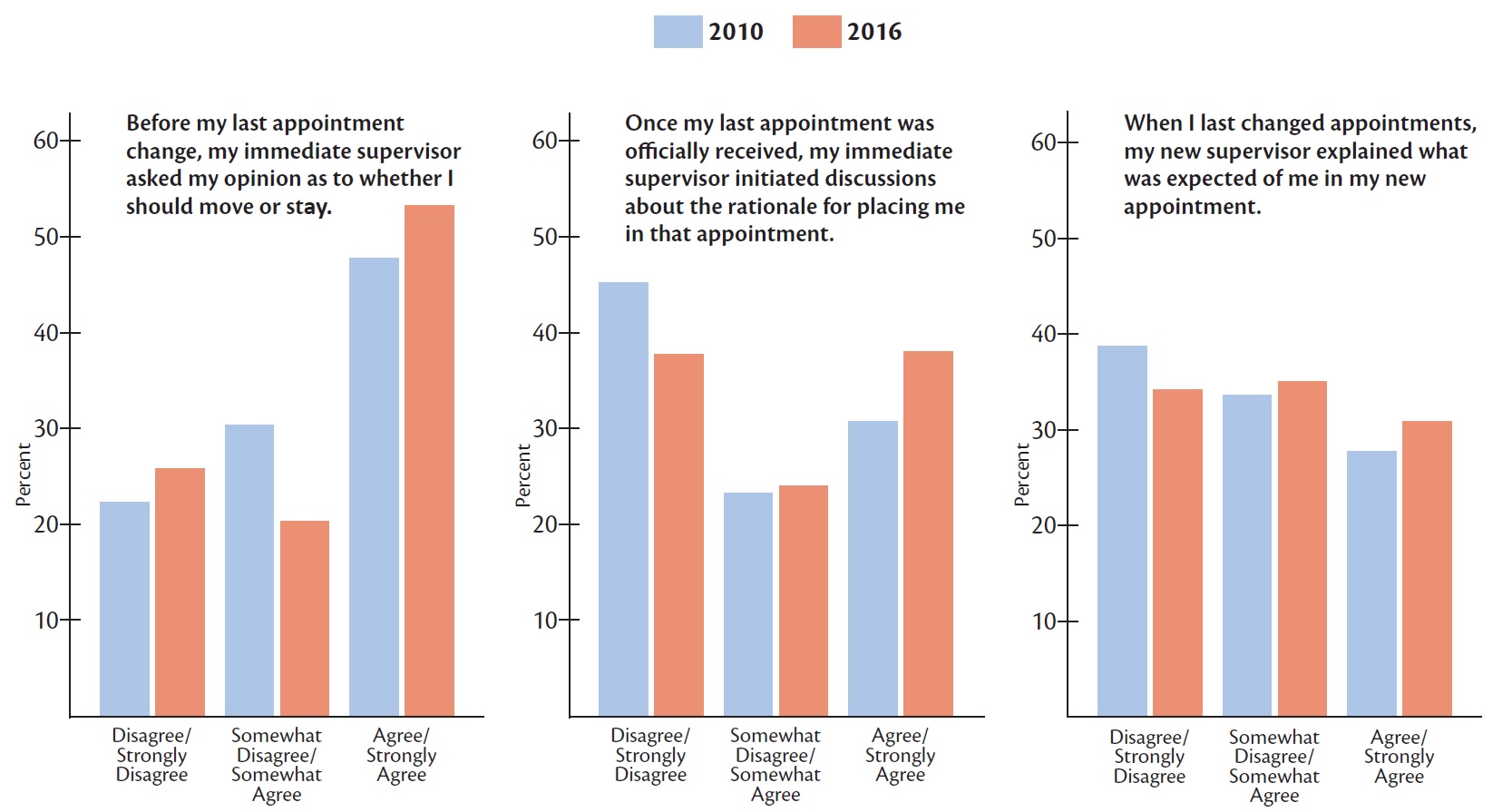How does the appointment process work? Is it fair? Who decides? Those are big questions. It is my hope that with more information, more understanding will come. It is a complex process that involves a great deal of trust, information and prayer.
First, as secretary for personnel, I can confirm that there are no dartboards involved. Meetings are held in November and February with territorial and divisional leaders, including divisional commanders and the training principal at the College for Officer Training, for what are called “consultations.” This is an opportunity to examine and declare which officers might need or want to move; which officers are ready to move for developmental or personal reasons; and which ministry units need new officers. In 2016, 41 officers will retire and 20 cadets will be commissioned. This adds another dimension to the needed changes.
This process is not hurried and decisions are not made quickly or lightly. There is much time for prayer, worship and devotions. There is a strong awareness of all those who are going to be affected by decisions made, including the children of officers. When we take into consideration personal and family needs, ministry unit requirements, officer development needs and geographical implications, it often seems impossible to complete the task. And then some miracles happen and we realize that God's hand is truly in the process, guiding all those involved.
Yet there are times when decisions are made with a great deal of trust, knowing that a human understanding of best fit and outcomes doesn't always seem attainable. It is difficult knowing that the decisions may lead to both joy and sorrow. We pray fervently that “in all things God works for the good of those who love him, who have been called according to his purpose” (Romans 8:28).
When it comes to decision-making, the territory is adopting a practice known as “fair process.” Fair process means that in any decision-making process, there is engagement, explanation and expectation clarity. We attempt to engage as many stakeholders as possible. The reasons and rationale behind a decision are explained as much as possible. And our goal is a clear understanding of expectations, for both the decision-makers and those on the receiving end of the decisions. This is a great lens through which we can examine how we make decisions. I don't think we've reached this point yet, but we're heading in the right direction.
This process is not hurried and decisions are not made quickly or lightly
As secretary for personnel, I might be compared to a person who orchestrates a trapeze show, convincing people to let go of something secure while knowing that there's something else, which is also secure, to reach out and grab a hold of. That moment when the trapeze artist is holding on to nothing and wondering whether or not they will make it must be terrifying.
Similarly for officers, that stage in between appointments can be very scary. You have no keys, no house, nowhere to live and you're driving across the country wondering why you ever signed up for this. Everyone responds differently in this moment. Extroverted people voice their concerns while introverted people stop talking and shut the rest of the world out. Eventually, however, there is a destination and something to hold on to: a new adventure and place of ministry. One remembers the chorus from What Can I Say: “Just where he needs me, my Lord has placed me.”
As I write this, I recognize that there are many people—officers and Salvationists—who have been hurt by the appointment process and find it difficult to see fair process. For that, I am truly sorry. This year, I ask again that we pray for all those involved, that we seek God's heart for understanding the decisions and that we support one another in the transitions that are about to take place. That's how a culture of trust will grow in our movement.
Lt-Colonel Jamie Braund is the secretary for personnel of the Canada and Bermuda Territory.

Lieutenants Stephen and Rosalyn Toynton
Springhill Community Church and Amherst Community Church, N.S.
We are currently in our first appointment, having been commissioned in 2015. For us, it didn't matter where we were sent because we knew that it was God's will. We felt a calmness knowing that the whole process was well prayed over.
We felt engaged in the appointment process, right from the start. While we were still at training college, Lt-Colonel Jamie Braund asked us questions about what kind of ministry would suit us, and he was open to hearing about any concerns that we may have had. One concern for us was where our daughter, Mary, would be educated and, in that respect, things have turned out really well. We can see the school from the quarters' window and she comes home for lunch every day, which is a treat. We also shared that, given our background, we would feel most at home in a corps with a traditional music style, and Springhill and Amherst are a good fit in that respect, too.
Since our arrival, we have met with our area and divisional commanders, who have invited us to be ourselves and follow the leading of the Lord, and the people at the corps have been very supportive as well. Overall, we couldn't have asked for a better appointment at this stage in our lives. It fits us to a T.
Major Elaine Bridger
Area commander and divisional secretary for women's ministries, Alberta and Northern Territories Division
 I've been in my current appointment since February 2015. I had only been in my previous appointment for 16 months, so I was surprised when my divisional commander approached me about the move. A number of questions were discussed before the appointment was made: Was this something I could embrace? What did I think about it? How would it affect me? How would it impact my current appointment?
I've been in my current appointment since February 2015. I had only been in my previous appointment for 16 months, so I was surprised when my divisional commander approached me about the move. A number of questions were discussed before the appointment was made: Was this something I could embrace? What did I think about it? How would it affect me? How would it impact my current appointment?
The Salvation Army has been very supportive to me personally in accommodating my family needs. I'm a single spouse officer. My husband is a retired officer who is under the care of a specialist because he has a lung condition that is deteriorating. It's not that I can't move, but because of our circumstances, it is beneficial for us to stay in Edmonton where his specialist is. I've been in Edmonton for 10 years now and they've been able to accommodate me with various appointments in the city.
Now, as an area commander, I'm on the other side of the appointment process. But I know from personal experience how valuable it is to have someone listen and feel that you have some control over what happens. I want to get to know the officers in my area—to know their heart, what drives them, their passions, when they're hurting—and to have a discussion with them. Communication is key.
The consultation process has really grown in recent years. When I was commissioned almost 30 years ago, the mindset was “point and go.” Today, there's more openness. Officers feel affirmed that they have a voice. The new process is so much better because it puts the value on the people and invests in them.
Majors Steven and Corinne Cameron
Kitchener Community Church, Ont., and executive director, Kitchener Parent and Child Resource Centre (Major Corinne Cameron)
 When we finished training in 1999, we were the first session in Canada to get the appointments before commissioning. At that point there wasn't “fair process” as it is now understood, but it has grown exponentially since then. Corinne has had several concurrent appointments, and there has been a lot of dialogue around that because it's an additional request.
When we finished training in 1999, we were the first session in Canada to get the appointments before commissioning. At that point there wasn't “fair process” as it is now understood, but it has grown exponentially since then. Corinne has had several concurrent appointments, and there has been a lot of dialogue around that because it's an additional request.
As part of Corinne's additional appointment to the Parent and Child Resource Centre, Major Glenda Davis, our area commander, met with the corps' mission board to talk through the fact that the church would no longer have two full-time officers and give them the opportunity to speak into this change. That's an important part of fair process—recognizing that it's not just the corps officers who are impacted by a change, but also the people at the appointment.
Our appointments have always been kind to our kids. As part of the consultation process, we complete personal development information forms. One of the questions asked is, Are there any family concerns that the Army should be aware of? Last year, we noted that our son was going to be concluding Grade 10. We were only finishing our fourth year, but we knew that if we stayed for another year, it would be tough on him, moving right before Grade 12. That concern was honoured and our son's education became part of the conversation we had with our divisional commander.
This latest change has been a healthy thing for us as officers, as well as our children. Corinne enjoyed her previous role as executive director of the Barbara Mitchell Family Resource Centre in Winnipeg, so to be in a similar role while also being a corps officer again is a gift. But no matter what role we're in, our approach is to seek the God appointment in every appointment. God has a plan and a purpose in every appointment; it's about waiting on him and discerning his will.
Officers Have Their Say: Appointment System Survey Results
In January 2016, The Salvation Army conducted a survey of officers focusing on fair process in the appointment system. It was open to the 618 officers who had experienced a change of appointment between October 1, 2010, and December 31, 2015. This survey was an update in part of a 2010 survey.
An introduction to fair process was presented at the start of the survey since not all officers had been exposed to this concept. Officers were invited to respond to 10 statements using six options ranging from “strongly disagree” to “strongly agree.”
- 363 officers responded to the survey
- Five statements related to engagement, three to explanation and two to expectation clarity
[click image to enlarge]











Comment
On Thursday, April 21, 2016, mj said:
Leave a Comment